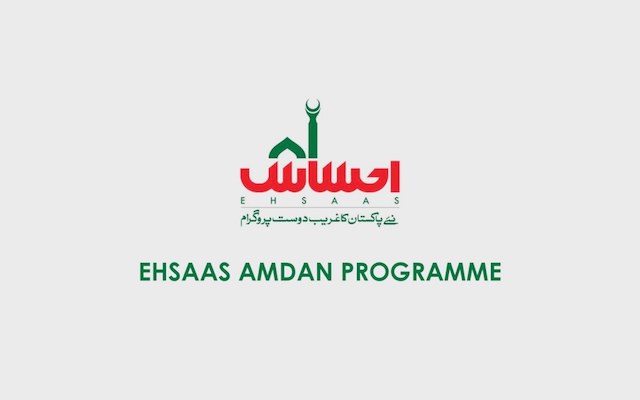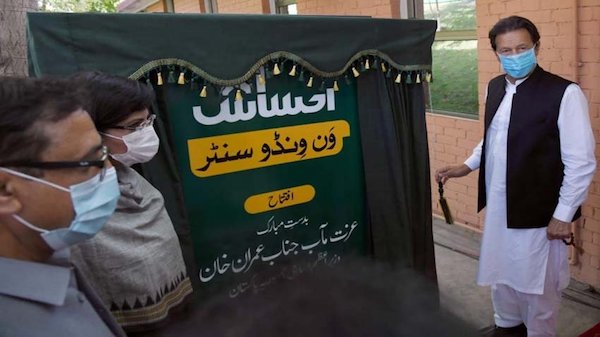A lot of the concerns mentioned in the previous article generally comes down to standards of project management, part of which includes identifying multiple possible means to an end, and equally considering for worst case scenarios. Issues of mismanagement, low adoption of technology, and incidents of corruption were unexpected, as these were all previously handled and well man- aged by Dr. nishtar in many of the previous projects and roles she participated in. What we can’t put a finger on through this small article is basically how things got so out of hand, especially with someone with the perfect background and experience, unable to influence an out- come that really should have been relatively within control. The Special Assistant has had a wealth of experience across several fronts, including building organisations from scratch; considerable experience working with the GoP at a high level, chairing the BISP; furthermore she had experience working in multilateral organisations at a very high level, currently acting as a chair of the WHo commission on non communicable Diseases, as well as the Wef’s Global future council on Health.
The handling of women’s health, of which the Kafalat program was directly linked, is something she has vast experience in, in relation to serving as the founding chair of the un Secretary General’s Independent Accountability Panel for the Global Strategy on Women’s and children’s Health. Her involvement in anti-corruption initiatives is evident through not only her own NGO Heartfile, which uses an Information based identity tracking system, but also through being a featured personality on anti-corruption day in 2013 by the Asian Development Bank.
What’s puzzling is how, with her being in an authoritative position of power, the types of incidents being communicated could have taken place. When Heartfile was founded in 1999, it happened because of nishtar’s empathy for the plight of those living without access to adequate healthcare, spurning her into action. now that the situation is one involving loss of life, instead of access to care, the extreme concern and sincerity which has clearly marked the majority of nishtar’s career seems to be missing, at a time when it was most needed by her country of origin.

Despite fulfilling much of the required output for EHSAAS payments, the government has also experienced mass failure of both bio- metric identification, with regards to actual amount of people scanned, lack of coordination for needy people seeking government support, and as a consequence, a large segment of people who are not able to receive any funds despite passing eligibility. In Lahore dozens of citizens staged a protest outside of the NADRA Mega centre on egerton Road, demanding the opening of the authority’s offices in order to undertake fingerprint verification. They complained that they had run to one office after another, with no help or attention as to their needs. Applicants complained of being stuck between a rock and a hard place, in terms of both being (a) unable to earn a living due to the lockdown, as well as (b) being unable to access government funds due to being denied service. Where are these people expected to turn? The issues with biometrics can be observed on several fronts.
One woman had been sent money in the name of her husband who had recently passed away, she went to avail herself of this at one of the cash disbursement centers but the officials sent her away in order to get her credentials verified. She said in an interview with Tribune, that she appeals to the PM to direct the authority to open its offices and verify credentials/ fingerprints of the poor who face hardship due to the lockdown.
Despite any efforts to make it hygienic or free from any type of corruption, the usage of retail agents who process the transfers via easy Paisa are inevitably going to decrease the amount given to the customers, or charge fees for the biometric identification process, since there are no laws or guidelines accompanying the provision of cash transfers through retail agents, who are only sometimes brought to justice when customers inform local police or administration centers. Insisting that performance of transfers through retail agents is almost an act of negligence as doing so inevitably guarantees that agents are going to try and take advantage of the applicants. It is almost as if the government is insisting that there is no other way, no more professional or efficient routes to deliver cash to customers, and that the inevitable payment intermediary for emergency transfers are the agents.

There is a situation whereby older and thus most needy applicants to aid programs cannot even go through the verification process since they do not have any fingerprints or very little, according to an official at a cash centre, this is reported to be the case among labourers and older women. These people have to be automatically refused by the center due to factors outside their control, and the stringent use of thumbprints for bio-metric identification.
Both the government`s failure to manage the lockdown, and then the bureaucracy surrounding the EHSAAS programme have had a devastating impact on citizens. Despite this, the integrity of the cabinet should be maintained in order to prevent the management of COVID turning into a situation of political vacuum, and all parties should be warned that if such a scenario is precipitated there could be a very messy transition. All of this is quite easily manipulated by anti-state elements and could be co-opted by opposition politics and the politicisation of the COVID crisis, which should be avoided.
What can be focused on however, and this is something which can temporarily diffuse the childish bickering between political parties is the focus on projects towards emergency protocols and disaster management. This requires all members of parliament and those interested in governance, policy or crisis management to set aside their personal differences and seek to find actionable solutions which would be carried out by a third entity allowing for the establishment of a professionally operated emergency management body, whose responsibility would be towards (a) managing the impact of a crisis, i.e. a virus, and (b) temporarily manage provision of basic needs and operating some of the basic forms of trade based on which the impoverished and underbanked survival depends.

What seems to be needed now There is a situation whereby older is a digitally enabled solution that allows aid recipients to both (a) conduct trade through sale of FMCGs in retail online or through mobile technology, and (b) receive, save, and send money from payments and/or government disbursed aid. This requires an enabling environment from the government, and a passing of the baton over to well meaning NBfIs.
In previous articles the concept of a payment loop, as well as a digital financial lending platform, along with necessary enabling factors from the regulatory bodies has been discussed. Access of the small goods sellers and daily wage earners to e-commerce platforms needs whole hearted dedication by the government and the Digital Pakistan Initiative as the crisis unfolds, the original project timeline should be adjusted as it is now necessary. Whie they buy from the distributors online, a solution for their banking needs via EMI services, with a few additional functions whereby they may receive government aid, as well as carry out savings activities has to be planned out and then promoted en masse. for those who are unable to do this work, receiving loans aside from government sources can be considered, but for this, a working mechanism has to be in place for Nano and micro lending via digital only channels, backed by private capital.





